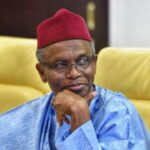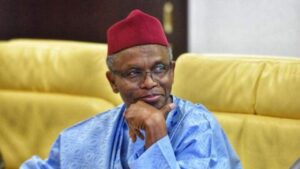In the wake of the fuel subsidy removal, Governor Uba Sani has appealed to Nigerians for patience and understanding with President Bola Tinubu’s administration.
Governor Sani made this plea during an appearance on Channels Television’s “Politics Today” program on Thursday.
He emphasized that both the President and the governors are actively implementing measures to mitigate the impact of the fuel subsidy removal and lessen the burden on citizens.
Acknowledging the existence of a fuel subsidy, Governor Sani expressed concerns about the rampant corruption associated with it, which, in his view, has hindered Nigeria’s progress. He stressed that combating corruption entails anticipating resistance and challenges.
“I implore the Nigerian Labour Congress, TUC, and all other trade union leaders to grant President Asiwaju some time; he has well-thought-out plans, and we, the governors, also have robust strategies in place for the benefit of all. Therefore, we must approach these issues with caution to avoid making promises we cannot fulfill,” Governor Sani urged.
He underscored that the NLC, TUC, and other labour unions are actively engaged in the government’s efforts and are well-informed about the nation’s challenges.
“We, as governors, have engaged with unions at the state level. President Asiwaju is committed to ensuring that he carries everyone along.
“The approach here is to consider the broader perspective of the issue, and President Asiwaju is diligently pursuing that. I have full confidence in his approach,” he added.
Governor Sani also emphasized the importance of including the most marginalized segments of society in labour agreement decision-making.
“As we contemplate solutions to the fuel subsidy issue and its impact on the overall economy, we must consider those who can contribute to the discussion. I’m referring to vulnerable individuals, the underserved, market women, farmers, and people living with disabilities. They are all affected; they utilize the same markets and transportation systems. They make up about 90 percent of the population,” he emphasized.
In his view, addressing this issue requires a comprehensive approach that takes into account the entire population.
It’s worth noting that earlier on Thursday, the National Economic Council (NEC) called upon the Nigerian Labour Congress (NLC) and the Trade Union Congress (TUC) to reconsider their planned industrial action.









More Stories
Zelensky says he is ‘ready’ to resign as Ukraine president
In mass firings, Elon Musk’s DOGE demands U.S. federal employees detail work done in previous week or turn in resignations
Kidnappers abduct 60-year-old patient from Kano Neuro-Psychiatric hospital